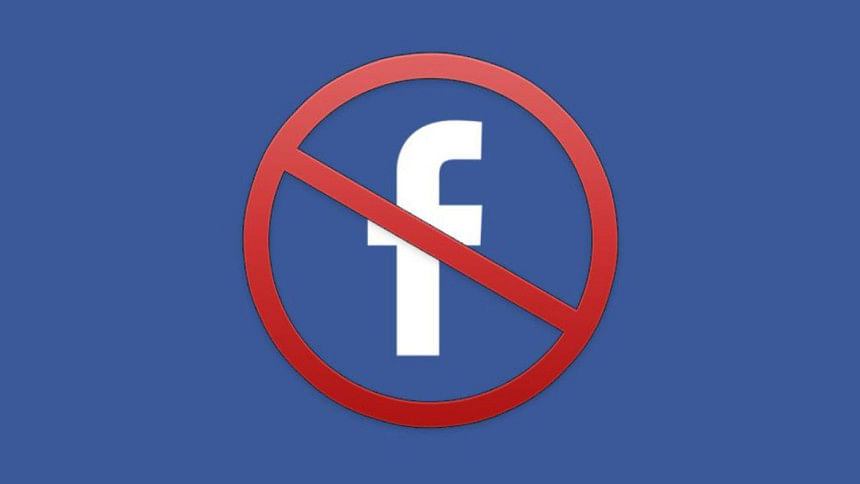Help is around the corner, court it and benefit

There's a sigh of relief breezing through the country's 18 million internet users over the unblocking of the social media sites the government had clamped down on, for more than three weeks, on security grounds. Clearly, the shutdown overstayed justification, if any, of a perceived fallout of the sentencing to death of two top criminals against humanity. To most people's disgust, it was continued beyond the anxiety and tolerance thresholds they were used to.
While negotiations were going on with Facebook, and the next round of parleys likely to be held in Singapore on January 4, the ban could possibly have been lifted sooner rather than later with the dust settling on some sensitive security concerns.
More to the point, people wondered in disbelief, as to why by far an overwhelming majority of perfectly benign and mutually benefitting net users be allowed to be held hostage to the minuscule minority of abusers of the social media.
The minister herself has said that the lid could be put back in place in case of an 'emergency'. Her reported promise --'never again'-- perhaps means the jamming will never again be for 23 days! So, people are not exactly throwing up their fists in joy at the resumption of the access to services which goes with a caveat!
The attempt to shut off the ever expanding social media is like wringing the wind by hand that will rush in anyway; and like water and fire taking their own levels in floods or blazes, so do the popular cyber sites expand seamlessly. You can only recall the incidence of circumventing the ban underlining the inevitability of the surge.
The good news is the German deal with Facebook, Google and Twitter to delete hate speech from the cyber contents within 24 hours of its appearance. The complaints would be assessed by 'specialist teams' at the three companies using the benchmark of German law.
Some contextual differences between Germany and Bangladesh apart, State Minister for Posts and Telecommunications Tarana Halim's bid to get an accord with social media for distilled news and views may find a resonance in the German breakthrough.
What triggered the German deal was a Facebook posting from the country on bomb threats leading to the shutting down of all schools in Los Angeles. But a deeper analysis went behind the step initiated by the German government: 'Germany's official welcome for hundreds of thousands of refugees - mainly from Syria, Iraq and Afghanistan - has triggered a backlash from nationalists, including neo-Nazis.'
To quote German Justice Minister Heiko Maas: "When the limits of free speech are trespassed, when it is about criminal expressions, sedition, incitement to carry out criminal offences that threaten people, such content has to be deleted from the net."
We have sought remedy against messages hurting religious sentiments of people, fomenting violence against women and seditious remarks. These are broad non-specific concerns and subject to value judgments. Need we emphasise the obvious? We have to pinpoint the areas of vulnerabilities to invoke a workable response, a process we understand should be propelled by a well thought-out strategy and best practice methods followed by other countries.
Facebook, Google and Twitter are votaries of civil liberties, free speech and right to information. But increasingly they are realising the importance of implanting responsibility and commitment in the social media. For, there are no traditional layers of monitoring and editing in social media platforms like in the cases of print and electronic media. The social media platforms are in business which cannot afford to be devoid of normative ethical standards.
It is crucially important that we build and enhance our internal capacity backed up by clear strategic planning in consultation with experts at home and abroad to combat multi-dimensional cyber crimes. If we bring the friends closer we must mind the enemies even more up close to neutralise them.
In the essence, we face the challenge of creating expertise in this new field. For this, we can bank on international cooperation as iconic figures including high profile NRBs stand ready to shell out money for the purpose.
In Britain, there is the Government Communication Head Quarters (GCHQ) which monitors the cyber space and buttress the defense mechanism lest their computer-based systems are hacked into inoperability. This has been set up on a very vital assumption that most of our lives are these days conducted on the Internet.
We are looking at shared responsibility for an adequate response to the social media phenomena – BTRC, Internet service providers and cyber cafés -- all have to be involved in the undertaking. Lest you forget, some cyber cafes may have been vulnerable to abuse by irresponsible people who converge there.
Finally, blanket shutdowns of social media platforms are like using broad spectrum antibiotics for diseases about which the doctor has no clue.
The writer is Associate Editor, The Daily Star.

 For all latest news, follow The Daily Star's Google News channel.
For all latest news, follow The Daily Star's Google News channel. 



Comments